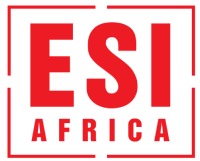Veil on critical minerals data needs to be lifted
The World Economic Forum suggests that a data-sharing initiative would strengthen international cooperation on critical minerals
The demand for critical minerals and their importance to the clean energy drive across the world is indisputable, but a lack of reliable information and data sharing from miners and the countries that produce – in particular – lithium, cobalt and nickel, have raised concerns..
During last September’s International Energy Agency (IEA) Summit on Critical Minerals and Clean Energy, one key takeaway was the need to enhance the availability of reliable information.
“Accurate, accessible and timely data is vital to ensuring a well-functioning market and allowing companies and policy-makers to set priorities to address potential chokepoints.
“Countries should also consider both international mechanisms for data sharing, while working to enhance the availability of IEA data that will enable stakeholders to gauge risks and identify bottlenecks,” said the IEA.
Call for greater cooperation at Mining Indaba 2024
Josh Goldman, KoBold Metals cofounder, speaking during a panel discussion at Cape Town’s Mining Indaba 2024, said collaboration and data sharing are vital for the sector.
Goldman also confirmed that KoBold Metals had discovered the largest copper deposits ever recorded in Zambia’s mining history and encouraged those interested to access the company’s online data relating to the discovery.
The panellists agreed that data sharing could increase the exploration success rates for mining companies and benefit the governments of the countries in which they operate.
Marna Cloete, President, Ivanhoe Mines, said data sharing holds the key to greater exploration success, coupled with transparent processes, especially regarding mining licences. Cloete encouraged African countries to explore shared learning and cross government cooperation as it could, “benefit all jurisdictions”. Data sharing initiative to ease investor uncertainty, price volatility.
According to the World Economic Forum (WEF) in a December 2023 report, critical minerals such as lithium, cobalt and nickel are key inputs for clean energy technologies.
However, insufficient data causes investor uncertainty. These minerals could become, “… highly important for the global economy like crude oil is today and play a major role in energy security.
“However, insufficient data on minerals consumption, production, trade and inventories is causing uncertainty for consumers and producers, leading to price volatility and possibly delaying much-needed investment to meet growing demand.
“Countries and private companies can facilitate the energy transition and mitigate energy security concerns by supporting international data sharing,” said the WEF.
It added that a lack of international data sharing on the consumption, production and inventories of many critical minerals creates uncertainty.
“While there is ample data for fossil fuels and established minerals and metals such as copper and nickel, there is much less information about – and no global authoritative source for – data on the trade supply of, and demand for, critical minerals such as lithium, graphite and cobalt.
“Policymakers can facilitate the energy transition and energy security by putting increased focus on critical minerals and taking action to help expand their supply.”
The WEF suggests that a data-sharing initiative would strengthen international cooperation on critical minerals and called for an international initiative to be launched to collect and share data about critical minerals markets.
This initiative can only work if advanced and emerging economies participate, as both markets are consumers and producers of critical minerals.
BRICS, Europe, West Africa in the mix for critical minerals
Last year, Russia proposed to create a BRICS (Brazil, India, China, South Africa) geological platform for data sharing to enable the BRICS countries to exchange data on their mineral reserves and extraction technologies.
Alexander Kozlov, Russia’s minister of natural resources and environment, met with Mosa Mabuza, CEO of the Council of Geoscience of South Africa, to discuss establishing a geological platform for the BRICS member states.
In 2023, Europe’s three largest economies – France, Germany and Italy – pledged to expand data sharing and cooperation across mining, refining and recycling.
Representatives from these countries vowed to expand data exchange practices and cooperation in the fields of mineral extraction, refining, processing, recycling and ESG standards.
During the recent ECOSA Mining and Petroleum Forum (ECOMOF 2024) in Benin, Ministers from West African governments explored ’strategies to pool for creation of value addition’ pertaining to the region’s geo-extractive resources and technologies sectors.
Damtien L Tchintchibidja, Vice President of the ECOWAS Commission, said, “The geo-extractive sector occupies a special place in the development policies and strategies of our community given the vast potential it offers. “The abundance of geo-extractive resources also places the community at the heart of global issues in terms of geo-strategies.”
Delving into data wealth
Technology services and consulting company Wipro, says that today’s mining industry’s wealth of data includes data related to equipment performance, orebody (resources, reserves), quality (grade), plant operations (recovery), drill and blast, energy/fuel consumption and maintenance.
Most mines have implemented some form of daily and monthly reporting, and many find that these experimentations are unable to scale, have an ill-defined problem statement, are too complex to manage in future, lack data quality or do not provide the desired benefits.
Wipro suggests a structured approach and the application of data analytics should progress as the business matures to derive data insights for decision-making. ESI
Cover photo: gorodenkoff©123RF.com


